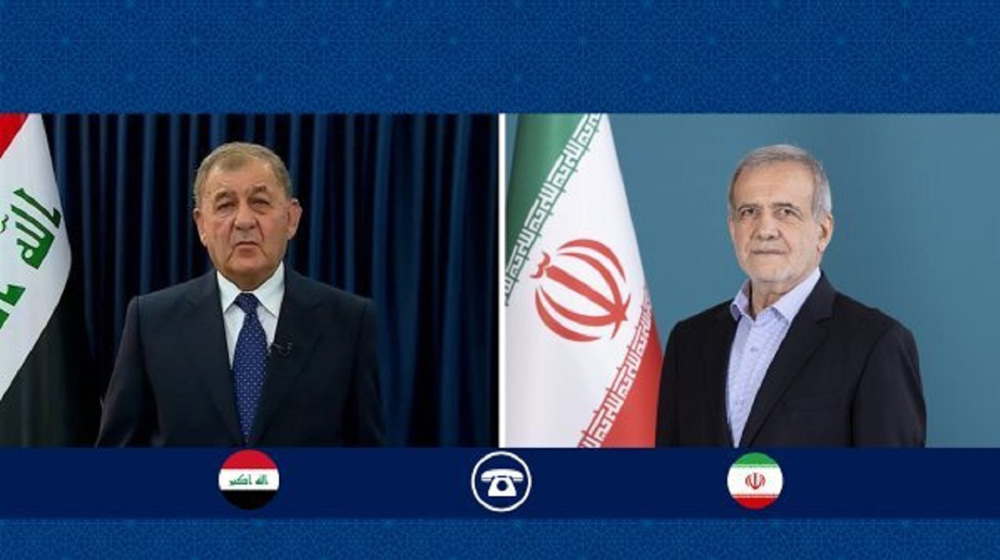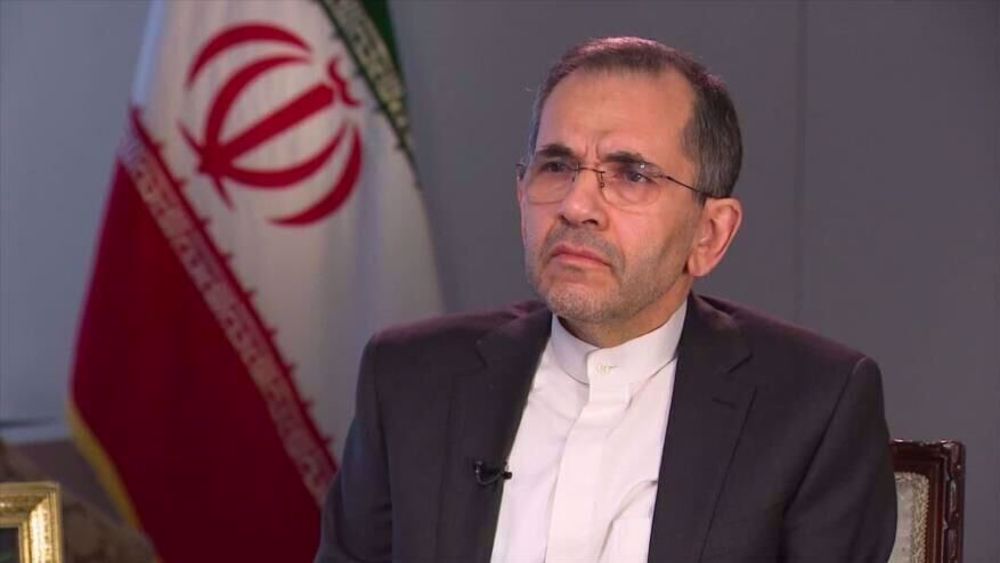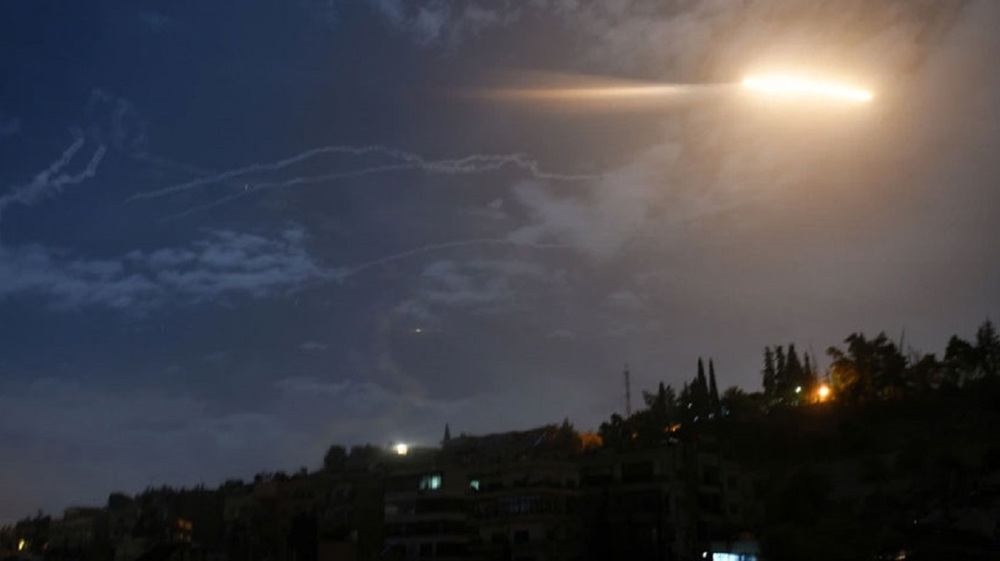UN Security Council must compel Israel to stop aggression on Syrian soil: Iran envoy
An Iranian envoy to the United Nations (UN) has called on the Security Council to pressure Israel to stop its violation of Syria’s sovereignty and territorial integrity amid the regime’s constant aggression on Syrian soil.
“The Council must compel the Israeli regime to put an immediate end to its aggressions against sovereignty and territorial integrity of Syria,” Zahra Ershadi, the deputy permanent representative of Iran to the UN, said in a statement on Tuesday before a UN Security Council session on the situation in the Middle East.
“Such adventuristic practices constitute flagrant violations of international law, threatening regional and international peace and security,” she added.
Ershadi’s comments came less than a week after the Israeli regime, in its latest aggression on Syria’s territory, fired two dozen missiles toward the capital Damascus and the western city of Homs with the use of Lebanon’s airspace.
There were no official reports of casualties as the Syrian air defense units had managed to down 22 of the 24 missiles launched by six Israeli warplanes.
The Syrian Foreign Ministry later renewed its call on the United Nations and the Security Council to assume responsibilities based on the UN Charter and act firmly to prevent the recurrence of the Israeli regime’s attacks on Syria’s territory.
The attacks started to grow significantly in scale and frequency after 2011, when Syria found itself in the grip of rampant foreign-backed militancy and terrorism.
Tel Aviv claims that its attacks target alleged supplies that are headed for the Lebanese resistance movement of Hezbollah. On countless occasions, though, the strikes have targeted the reinforcement belonging to Syria’s military and its allies.
‘Uninvited foreign forces must leave Syria’
The Iranian envoy also censured foreign intervention in Syria’s internal affairs and called for the immediate withdrawal of “uninvited” foreign forces and mercenaries from the war-ravaged country.
“We reiterate our principled position that the Syrian crisis must be settled peacefully and in accordance with principles of international law, particularly respect for the sovereignty and territorial integrity of States, non-intervention and non-interference in their internal or external affairs and peaceful settlement of international disputes,” Ershadi said.
“To create conducive grounds for ending the conflict in Syria, all uninvited foreign forces must leave that country without any precondition and delay, and terrorist groups must be confronted,” she added.
Syria has been gripped by foreign-backed militancy since March 2011, with the government saying Western countries and their regional allies are aiding terror outfits.
A US-led military coalition has been active inside Syria under the pretext of fighting the Takfiri Daesh terrorist group since September 2014 without any authorization from the Damascus government or a UN mandate.
The US military strikes in the Arab country have on many occasions resulted in civilian casualties and failed to fulfill their declared aim of countering terrorism.
The Syrian ministry has emphasized that such act of aggression contradicts the supposed role of the US, as a permanent member of the UN Security Council, which is tasked with safeguarding global peace and security.
Moreover, Turkey has been present in northern Syria militarily for the past years, despite strong protest from Damascus. Its declared aim has been to push Kurdish militants – and Daesh terrorists – away from Turkish borders.
In August 2016, Turkish troops, tanks and planes — in an operation called Euphrates Shield — crossed the border in what Ankara said was intended to push back Daesh terrorists and prevent the US-backed People's Protection Units (YPG) from gaining more ground in northern Syria.
On October 9, 2019, Turkish forces and Ankara-backed militants launched a cross-border invasion of northeastern Syria in an operation with the same objective.
Turkey views the YPG as a terrorist organization tied to the homegrown Kurdistan Workers' Party (PKK), which has been seeking an autonomous Kurdish region in Turkey since 1984.
‘US sanctions to blame for Syria’s humanitarian crisis’
Elsewhere in her remarks, Ershadi pointed to the illegal sanctions imposed by the US and some certain Western governments on Syria and said the restrictive measures were the “major causes of the current humanitarian situation in that country.”
Calling on the UN Security Council to take “practical steps” in removing the unilateral sanctions against the Arab country, the Iranian envoy said the coercive measures “seriously undermine the efficiency of humanitarian operations in Syria conducted by the United Nations and international non-governmental organizations.”
Since the onset of the Syria crisis in 2011, the US, the European Union and some Arab states — which have been supporting militant groups in their fight against the Syrian government — have imposed draconian sanctions against the Arab country over what they claim to be sponsoring terror and attacking civilians.
The restrictive measures have blocked imports of essential goods, impacting the Syrian people’s access to medical equipment, food, heating, gas and electricity.
Damascus has lambasted the US sanctions as “a crime against humanity and a flagrant violation of the international law that targets the livelihood of the Syrians.”

Pezeshkian says relations with Iraq ‘priority’, hails proximity of two nations

Reaching agreement ‘possible’ if US ends intimidation, threats: Iran’s deputy FM

‘Iran’s chemical warfare victims living proof of hollowness of West’s human rights claims’
Saudi Arabia calls for 'maximum pressure' on Israel as UN warns of ‘longest Gaza blockade’
Pezeshkian says relations with Iraq ‘priority’, hails proximity of two nations
China raises retaliatory tariffs on US goods to 125%
Reaching agreement ‘possible’ if US ends intimidation, threats: Iran’s deputy FM
‘Iran’s chemical warfare victims living proof of hollowness of West’s human rights claims’
China's oil imports from Iran surge despite US sanctions: Report
Official: Iran has surpassed West's 'arbitrary' redlines on nuclear tech
Mostly women, children killed as Israel expands Gaza onslaught










 This makes it easy to access the Press TV website
This makes it easy to access the Press TV website